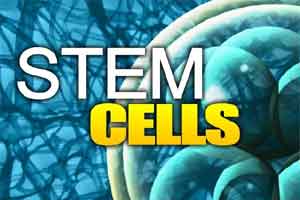- Home
- Editorial
- News
- Practice Guidelines
- Anesthesiology Guidelines
- Cancer Guidelines
- Cardiac Sciences Guidelines
- Critical Care Guidelines
- Dentistry Guidelines
- Dermatology Guidelines
- Diabetes and Endo Guidelines
- Diagnostics Guidelines
- ENT Guidelines
- Featured Practice Guidelines
- Gastroenterology Guidelines
- Geriatrics Guidelines
- Medicine Guidelines
- Nephrology Guidelines
- Neurosciences Guidelines
- Obs and Gynae Guidelines
- Ophthalmology Guidelines
- Orthopaedics Guidelines
- Paediatrics Guidelines
- Psychiatry Guidelines
- Pulmonology Guidelines
- Radiology Guidelines
- Surgery Guidelines
- Urology Guidelines
Lack Of Stem Cells Leads To Repeat Miscarriages: Study

London: In a development that could lead to new treatment for those who have suffered failed pregnancies, researchers have discovered that a lack of stem cells in the womb lining causes thousands of women to suffer from recurrent miscarriages.
"We have discovered that the lining of the womb in the recurrent miscarriage patients we studied is already defective before pregnancy," said lead researcher Jan Brosens, professor at University of Warwick in England.
"I can envisage that we will be able to correct these defects before the patient tries to achieve another pregnancy. In fact, this may be the only way to really prevent miscarriages in these cases," Brosens noted.
The findings were published in the journal Stem Cells.
Between 15-25 per cent of pregnancies end in miscarriage and one in 100 women trying to conceive suffer recurrent miscarriages, defined as the loss of three or more consecutive pregnancies, the study pointed out.
The researchers examined tissue samples from the womb lining, donated by 183 women.
The team found that an epigenetic signature -- which is typical of stem cells -- was absent in cultures established from womb biopsies taken from women suffering recurrent miscarriages.
Indeed, fewer stem cells could be isolated from the lining of the womb from recurrent miscarriage patients when compared to women in the study's control group.
The researchers further found that a stem cell shortage accelerates cellular ageing in the womb.
"Cultured cells from women who had had three or more consecutive miscarriages showed that ageing cells in the lining of the womb don't have the ability to prepare adequately for pregnancy," Brosens explained.
"We have discovered that the lining of the womb in the recurrent miscarriage patients we studied is already defective before pregnancy," said lead researcher Jan Brosens, professor at University of Warwick in England.
"I can envisage that we will be able to correct these defects before the patient tries to achieve another pregnancy. In fact, this may be the only way to really prevent miscarriages in these cases," Brosens noted.
The findings were published in the journal Stem Cells.
Between 15-25 per cent of pregnancies end in miscarriage and one in 100 women trying to conceive suffer recurrent miscarriages, defined as the loss of three or more consecutive pregnancies, the study pointed out.
The researchers examined tissue samples from the womb lining, donated by 183 women.
The team found that an epigenetic signature -- which is typical of stem cells -- was absent in cultures established from womb biopsies taken from women suffering recurrent miscarriages.
Indeed, fewer stem cells could be isolated from the lining of the womb from recurrent miscarriage patients when compared to women in the study's control group.
The researchers further found that a stem cell shortage accelerates cellular ageing in the womb.
"Cultured cells from women who had had three or more consecutive miscarriages showed that ageing cells in the lining of the womb don't have the ability to prepare adequately for pregnancy," Brosens explained.
Next Story
NO DATA FOUND

Disclaimer: This site is primarily intended for healthcare professionals. Any content/information on this website does not replace the advice of medical and/or health professionals and should not be construed as medical/diagnostic advice/endorsement or prescription. Use of this site is subject to our terms of use, privacy policy, advertisement policy. © 2020 Minerva Medical Treatment Pvt Ltd